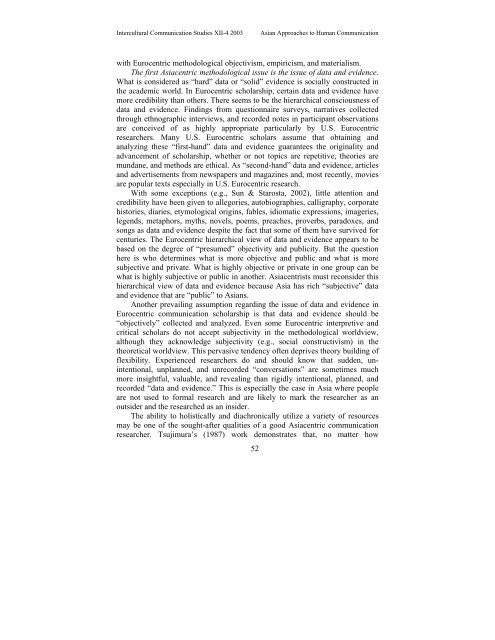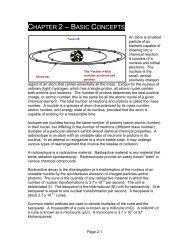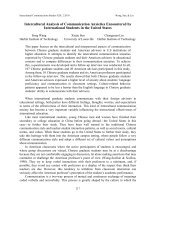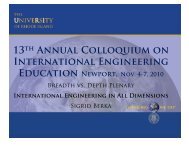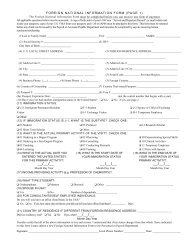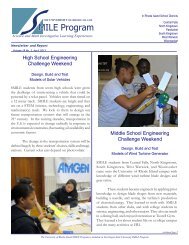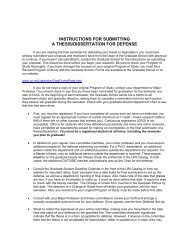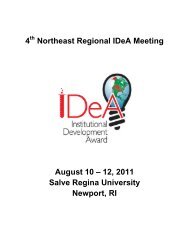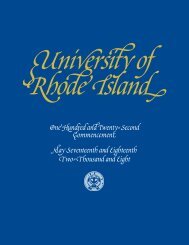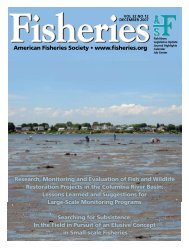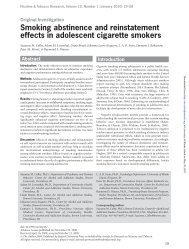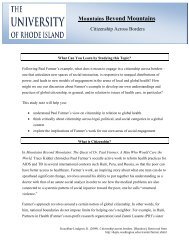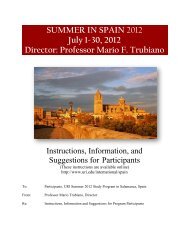asian approaches to human communication - University of Rhode ...
asian approaches to human communication - University of Rhode ...
asian approaches to human communication - University of Rhode ...
Create successful ePaper yourself
Turn your PDF publications into a flip-book with our unique Google optimized e-Paper software.
Intercultural Communication Studies XII-4 2003 Asian Approaches <strong>to</strong> Human Communication<br />
with Eurocentric methodological objectivism, empiricism, and materialism.<br />
The first Asiacentric methodological issue is the issue <strong>of</strong> data and evidence.<br />
What is considered as “hard” data or “solid” evidence is socially constructed in<br />
the academic world. In Eurocentric scholarship, certain data and evidence have<br />
more credibility than others. There seems <strong>to</strong> be the hierarchical consciousness <strong>of</strong><br />
data and evidence. Findings from questionnaire surveys, narratives collected<br />
through ethnographic interviews, and recorded notes in participant observations<br />
are conceived <strong>of</strong> as highly appropriate particularly by U.S. Eurocentric<br />
researchers. Many U.S. Eurocentric scholars assume that obtaining and<br />
analyzing these “first-hand” data and evidence guarantees the originality and<br />
advancement <strong>of</strong> scholarship, whether or not <strong>to</strong>pics are repetitive, theories are<br />
mundane, and methods are ethical. As “second-hand” data and evidence, articles<br />
and advertisements from newspapers and magazines and, most recently, movies<br />
are popular texts especially in U.S. Eurocentric research.<br />
With some exceptions (e.g., Sun & Starosta, 2002), little attention and<br />
credibility have been given <strong>to</strong> allegories, au<strong>to</strong>biographies, calligraphy, corporate<br />
his<strong>to</strong>ries, diaries, etymological origins, fables, idiomatic expressions, imageries,<br />
legends, metaphors, myths, novels, poems, preaches, proverbs, paradoxes, and<br />
songs as data and evidence despite the fact that some <strong>of</strong> them have survived for<br />
centuries. The Eurocentric hierarchical view <strong>of</strong> data and evidence appears <strong>to</strong> be<br />
based on the degree <strong>of</strong> “presumed” objectivity and publicity. But the question<br />
here is who determines what is more objective and public and what is more<br />
subjective and private. What is highly objective or private in one group can be<br />
what is highly subjective or public in another. Asiacentrists must reconsider this<br />
hierarchical view <strong>of</strong> data and evidence because Asia has rich “subjective” data<br />
and evidence that are “public” <strong>to</strong> Asians.<br />
Another prevailing assumption regarding the issue <strong>of</strong> data and evidence in<br />
Eurocentric <strong>communication</strong> scholarship is that data and evidence should be<br />
“objectively” collected and analyzed. Even some Eurocentric interpretive and<br />
critical scholars do not accept subjectivity in the methodological worldview,<br />
although they acknowledge subjectivity (e.g., social constructivism) in the<br />
theoretical worldview. This pervasive tendency <strong>of</strong>ten deprives theory building <strong>of</strong><br />
flexibility. Experienced researchers do and should know that sudden, unintentional,<br />
unplanned, and unrecorded “conversations” are sometimes much<br />
more insightful, valuable, and revealing than rigidly intentional, planned, and<br />
recorded “data and evidence.” This is especially the case in Asia where people<br />
are not used <strong>to</strong> formal research and are likely <strong>to</strong> mark the researcher as an<br />
outsider and the researched as an insider.<br />
The ability <strong>to</strong> holistically and diachronically utilize a variety <strong>of</strong> resources<br />
may be one <strong>of</strong> the sought-after qualities <strong>of</strong> a good Asiacentric <strong>communication</strong><br />
researcher. Tsujimura’s (1987) work demonstrates that, no matter how<br />
52


